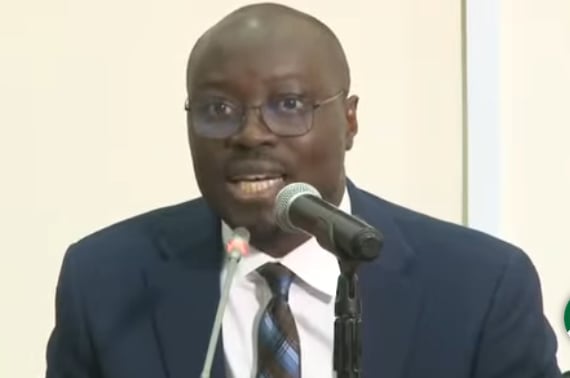Dr. Cassiel Ato Forson, the leader of the National Democratic Congress (NDC) parliamentary caucus, announced significant intentions from the party following their sudden acquisition of majority status in the Ghanaian Parliament. During a press conference on October 20, he declared that the NDC would utilize its new numerical advantage to propose the repeal of several contentious taxes that have been sources of public discontent, most notably the Electronic Transfer Levy (E-Levy) and the betting tax. Forson emphasized that this move signifies the party’s commitment to ameliorating the economic burdens faced by Ghanaians and will involve the introduction of private members’ bills aimed specifically at abolishing these taxes. The NDC’s objective is to act in the best interests of the populace by addressing economic hardships exacerbated by these financial levies.
The Electronic Transfer Levy, introduced by the ruling New Patriotic Party (NPP), has been met with widespread criticism and resistance, primarily due to its perceived negative impact on electronic transactions in Ghana. Many citizens and businesses have raised concerns that the E-Levy adversely affects their financial activities, indicating a broader dissatisfaction with the economic policies under the current government. Furthermore, the introduction of a 10% withholding tax on betting winnings has particularly angered younger demographics, who believe that such taxation disproportionately targets their entertainment preferences and interests, thereby hindering their economic engagement in the betting sector.
In his statements, Forson did not shy away from criticizing the NPP for fostering what he termed a “high tax regime,” suggesting that this environment is severely hampering the growth of businesses and the overall livelihoods of Ghanaians. He reiterated that the NDC’s primary goal with its newfound majority is to protect citizens and businesses alike, countering the fiscal challenges that the populace faces. Forson’s remarks underscore a broader commitment to economic reform and a promise to alleviate the increasing financial strain that many citizens experience due to the current taxation policies.
The NDC’s transition to the majority comes in light of recent developments where four parliamentary seats became vacant. These vacancies arose due to the decisions of some members to run as independent candidates or switch their party affiliations. Forson emphasized the significance of the NDC’s majority status in the 8th Parliament and reassured supporters that the party would maintain and safeguard this position. By claiming majority control, the NDC positions itself as a stronger oppositional force, ready to challenge the ruling government’s policies vigorously.
Moreover, Forson firmly asserted that the NDC would “jealously protect” their new majority, vowing not to retreat or yield to external pressures, including a recent Supreme Court ruling that temporarily halted the Speaker’s declaration regarding parliamentary standings. This determination reflects the NDC’s readiness to engage in rigorous parliamentary activities and legislative proposals that align with their commitment to addressing the tax concerns that resonate deeply with the Ghanaian public. Such a stance indicates the party’s strategy to aggressively pursue their legislative agenda without being deterred by legal or institutional challenges.
In summary, the NDC’s recent assertion of majority status presents an opportunity for the party to address pressing economic issues, particularly concerning taxation. Forson’s declarations suggest a robust plan to confront the E-Levy and the betting tax, which are seen as burdensome by the populace. This move not only aims to alleviate the financial strain on Ghanaians but also strengthens the NDC’s role in parliament as a defender of citizens’ interests against a backdrop of rising discontent with the NPP’s fiscal policies. As the NDC embarks on this mission, their commitment to protecting their newfound majority underscores a pivotal moment in Ghanaian politics, with significant implications for future governance and legislative developments.


